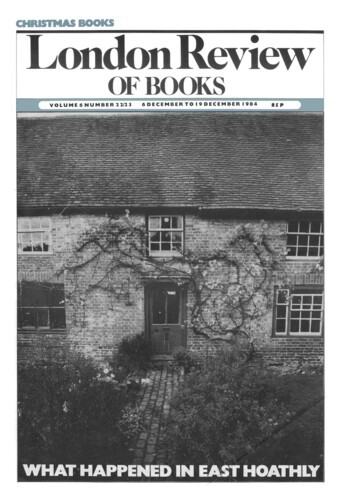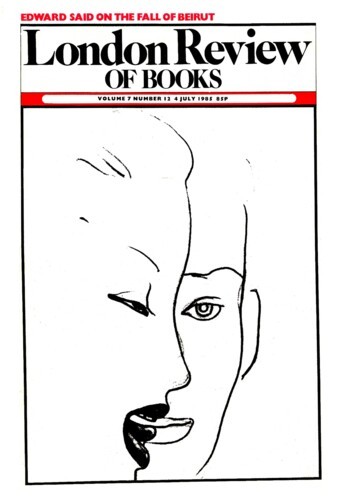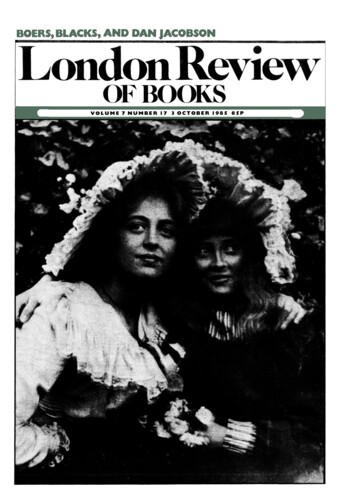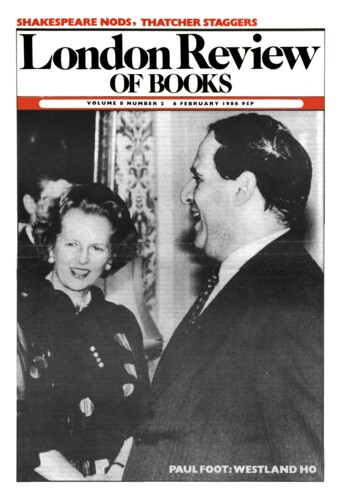Educating Georgie
E.S. Turner, 6 December 1984
According to Barbara Tuchman, quoted on the jacket, there is ‘a startling royal family scandal buried at the heart’ of this biography of Queen Mary. What steaming titbit can her fellow American, Anne Edwards, biographer of film stars, have turned up at this late hour? Can it really be that rather overworked rumour that identifies Prince Eddy, the Queen’s first fiancé, as Jack the Ripper? Indeed it can. James Pope-Hennessy did not find room to discuss this matter in his 685-page life of Queen Mary published in 1959, possibly because the hue and cry after Prince Eddy had not then gained its full impetus, possibly for other reasons. What can Anne Edwards tell us about this business? Unfortunately she knows no more than anybody else and can only ask a string of questions.




